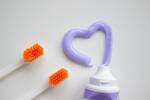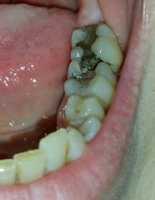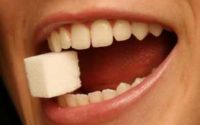Dental Research / 27.07.2023
Fluoride-Free Toothpaste Is Just As Good As Fluoridated Toothpaste, New Study Reveals
This article is for informational purposes only and is not a substitute for professional medical advice, diagnosis or treatment. Contact a qualified dentist or medical professional before engaging in any physical activity, or making any changes to your dental program, diet, medication or lifestyle,
For years, medical research has found that fluoride in toothpaste helps to prevent tooth decay and protect against cavities. As a result, most toothpastes contain between 1,000 to 1,100 mg/L of sodium fluoride or monofluorophosphate. But a new study has found that fluoride-free toothpaste is just as effective at preventing cavities as fluoride-based toothpaste. So, does this mean the end of using toothpaste enhanced with fluoride?
The study’s key findings
 Poznan University of Medical Sciences carried out a study involving 171 participants over a period of 18 months. The participants were split into two groups. One group used hydroxyapatite (fluoride-free) toothpaste and the other group used fluoridated toothpaste throughout the study. Six-monthly trips to a dental clinician were completed and a DIAGNOcam device and plaque-disclosing solution were used to check for signs of cavities and plaque. The end results revealed that almost 90% of people in both groups had no new cavities, which indicates that both hydroxyapatite toothpaste and fluoridated toothpaste keep cavities at bay.
Poznan University of Medical Sciences carried out a study involving 171 participants over a period of 18 months. The participants were split into two groups. One group used hydroxyapatite (fluoride-free) toothpaste and the other group used fluoridated toothpaste throughout the study. Six-monthly trips to a dental clinician were completed and a DIAGNOcam device and plaque-disclosing solution were used to check for signs of cavities and plaque. The end results revealed that almost 90% of people in both groups had no new cavities, which indicates that both hydroxyapatite toothpaste and fluoridated toothpaste keep cavities at bay.


